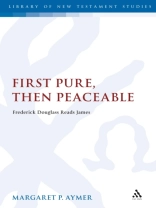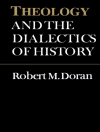In 2001, Continuum published the extensive collected papers from African Americans and the Bible, an interdisciplinary conference held at Union Theological Seminary, NYC. In the collection’s introduction, Vincent L. Wimbush issued a challenge to take seriously those who "read darkness, " and to consider what it is they are doing when they read the Bible as "scripture." Wimbush’s focus on "darkness readers, " both within and outside of the African diaspora, breaks open the discourse around the nature, meaning, and importance of the Bible. By following the lead of "darkness readers, " the Bible is revealed to be more than a collection of ancient documents from an inaccessible past; it is the site upon which modern, contemporary ideological battles have and continue to be waged.In this book Margaret Aymer takes up his challenge. It is an examination of the way in which Frederick Douglass, the nineteenth-century abolitionist, used the epistle of James, particularly Jas 3:17, in his abolitionist speeches, to "read" the "darkness" of slavery and slaveholding Christianity. Within the epistle of James is a rhetoric of the world as "darkness". Douglass uses this to read his contemporary "darkness." As part of her research, Aymer has created an index of biblical references in all of Frederick Douglass’ abolitionist speeches as collected by J. W. Blassingame (1841-1860).
Margaret Aymer
First Pure, Then Peaceable [PDF ebook]
Frederick Douglass Reads James
First Pure, Then Peaceable [PDF ebook]
Frederick Douglass Reads James
قم بشراء هذا الكتاب الإلكتروني واحصل على كتاب آخر مجانًا!
لغة الإنجليزية ● شكل PDF ● صفحات 164 ● ISBN 9780567002396 ● الناشر Bloomsbury Publishing ● نشرت 2008 ● للتحميل 6 مرات ● دقة EUR ● هوية شخصية 3062766 ● حماية النسخ Adobe DRM
يتطلب قارئ الكتاب الاليكتروني قادرة DRM












